0
Publication
Community:
Nov 17, 2022
Lessons for funders and social change leaders in search of the best ways to collaborate across sectors to end homelessness.
Authored by: Seyron Foo, Raji Hunjan, & Amy Kleine for the Stanford Social Innovation Review
Topics: Funding, Homelessness, Housing, Low-income, Supportive housing, Youth
 Shared by Sandra Ware
Shared by Sandra Ware
Sandra Ware posted a
on Jan 3, 2023
Seyron Foo, Raji Hunjan, & Amy Kleine for the Stanford Social Innovation Review
Lessons for funders and social change leaders in search of the best ways to collaborate across sectors to end homelessness.
0
Case study
Community:
Oct 25, 2022
According to UN-Habitat, the world needs to build 96,000 affordable homes every day to address the
global housing crisis by 2030. Yet, better utilizing existing housing stock—through options such as shared
housing—can make a significant dent in the need to build more housing. With college students often
challenged to find affordable housing and many older adults living alone in homes with spare bedrooms,
these two groups are increasingly benefitting from living together. Universities are often well-suited to
facilitate students living and learning with older adults in nearby communities. Intentionally fostering
intergenerational engagement through places and programs can reduce loneliness, mitigate ageist
stereotypes, and help both groups to thrive.
Authored by: Stephanie Firestone and Julia Glassman for AARP Equity by Design
Topics: Community development, dual-generation initiative, Funding, Health, Homelessness, Housing, Mental health, Seniors, Youth
 Shared by Sandra Ware
Shared by Sandra Ware
Sandra Ware posted a
on Oct 25, 2022
Stephanie Firestone and Julia Glassman for AARP Equity by Design
According to UN-Habitat, the world needs to build 96,000 affordable homes every day to address the
global housing crisis by 2030. Yet, better utilizing existing housing stock—through options such as shared
housing—can make a significant dent in the need to build more housing.
0
Video
Community:
Jun 17, 2022
Building off discussions during previous Summits, this panel will highlight research and promising practices on cash assistance for low-income individuals and families, including income supports stemming from the pandemic.
Authored by:
Topics: Advocacy, CLPHA, Funding, Housing, Legislation & Policy, Research
 Shared by Karina George
Shared by Karina George
Karina George posted a
on Jun 17, 2022
Building off discussions during previous Summits, this panel will highlight research and promising practices on cash assistance for low-income individuals and families, including income supports stemming from the pandemic.
0
Report
Community: Youth
Nov 3, 2020
As housing costs have escalated and inequities persist across the country, many young people need flexible, empowerment-based investments to get stably housed and onto a path to thriving. To this end, direct financial assistance (“cash transfers”) with other supports offer a promising solution grounded in a robust global evidence base. The circumstances of COVID-19 amplify the importance of developing and evaluating youth-informed approaches to doing things differently.
This report shares results and implications of a year-long research and stakeholder engagement process that Chapin Hall conducted in collaboration with Point Source Youth to inform the development of a Direct Cash Transfer Program (DCTP) for youth experiencing homelessness. We look forward to piloting and rigorously evaluating a program based on these findings, starting in NYC.
Authored by: Matthew Morton for CHAPIN HALL AT THE UNIVERSITY OF CHICAGO
Topics: Community development, Funding, Homelessness, Housing, Low-income, Youth
 Shared by Housing Is
Shared by Housing Is
Housing Is posted a
on Nov 3, 2020
Matthew Morton for CHAPIN HALL AT THE UNIVERSITY OF CHICAGO
As housing costs have escalated and inequities persist across the country, many young people need flexible, empowerment-based investments to get stably housed and onto a path to thriving.
0
Video
Community:
Jun 12, 2020
June 4-5, 2020, Hosted Virtually via Zoom
Authored by: CLPHA
Topics: Funding, Health, Housing, Medicaid / Medicare, Summit 2020
 Shared by Steve Lucas
Shared by Steve Lucas
Steve Lucas posted a
on Jun 12, 2020
June 4-5, 2020, Hosted Virtually via Zoom
0
Report
Community:
Jun 6, 2019
Trends in Housing Assistance and Who it Serves
Authored by: PAHRC
Topics: Community development, Disabilities, Education, Funding, Health, Homelessness, Housing, Legislation & Policy, Low-income, Partnerships, Research, Seniors, Workforce development, Youth
 Shared by Keely Stater
Shared by Keely Stater
Keely Stater posted a
on Sep 10, 2019
Trends in Housing Assistance and Who it Serves
0
Report
Community:
May 1, 2019
Child poverty is an urgent and preventable crisis. Solutions to child poverty already exist if we just expand and invest in them. Benefits like nutrition assistance, housing vouchers and tax credits helped lift nearly 7 million children out of poverty in 2017, but millions of children were left behind due to inadequate funding, eligibility restrictions and low wages. We can and must fix these problems to help more children escape poverty now.
Authored by: Children's Defense Fund
Topics: Child welfare, Dual-generation, Early childhood, Food insecurity, Funding, Housing, Legislation & Policy, Low-income, Research, Workforce development
 Shared by Housing Is
Shared by Housing Is
Housing Is posted a
on May 28, 2019
Child poverty is an urgent and preventable crisis. Solutions to child poverty already exist if we just expand and invest in them.
0
Video
Community:
May 24, 2019
Foundations often play a leadership role in forging innovative cross-sector collaboration. Hear from funders about their philanthropic giving and impact investing strategies aimed at expanding opportunity and improving long-term life outcomes for lower-income individuals and communities.
Authored by: Housing Is, CLPHA
Topics: CLPHA, Funding, Homelessness, Housing, Partnerships
 Shared by Housing Is
Shared by Housing Is
Housing Is posted a
on May 24, 2019
Foundations often play a leadership role in forging innovative cross-sector collaboration. Hear from funders about their philanthropic giving and impact investing strategies aimed at expanding opportunity and improving long-term life outcomes for lower-income individuals and communities.
0
News Article
Community:
May 16, 2019
Mold. Leaks. Rodents. Crime. These are just some of the things the nation's 2 million public housing residents have to worry about. Many of the buildings they live in have been falling into disrepair for decades. Public housing officials estimate that it would cost $50 billion to fix them up. But the Trump administration wants to eliminate the federal fund now used to repair public housing in favor of attracting more private investment to fix up and replace it.
Authored by: Pam Fessler for NPR
Topics: CLPHA, Funding, Housing, Legislation & Policy, Low-income
 Shared by Housing Is
Shared by Housing Is
Housing Is posted a
on May 20, 2019
Mold. Leaks. Rodents. Crime. These are just some of the things the nation's 2 million public housing residents have to worry about. Many of the buildings they live in have been falling into disrepair for decades. Public housing officials estimate that it would cost $50 billion to fix them up.
0
Policy Brief
Community:
May 9, 2019
On May 9, the House Appropriations Committee passed its FY2020 appropriations bill for Labor, Health and Human Services, and Education. The House bill includes $100 million in FY2020 funding for the McKinney-Vento Act’s Education for Homeless Children and Youth (EHCY) program. This represents a 7% increase over the FY2019 level; if enacted, it would represent a 30% increase in EHCY funding since FY2017.
Authored by: SchoolHouse Connection
Topics: Child welfare, Funding, Homelessness, Housing, Legislation & Policy
 Shared by Housing Is
Shared by Housing Is
Housing Is posted a
on May 15, 2019
On May 9, the House Appropriations Committee passed its FY2020 appropriations bill for Labor, Health and Human Services, and Education. The House bill includes $100 million in FY2020 funding for the McKinney-Vento Act’s Education for Homeless Children and Youth (EHCY) program.
0
Video
Community:
May 9, 2019
On May 9, the Brookings Institution hosted an event to discuss the subsequent report, “A Roadmap to Reducing Child Poverty.” The event featured comments from Greg Duncan, who served as Chair of the Committee on Building an Agenda to Reduce the Number of Children in Poverty by Half in 10 Years, as well as a panel discussion on the report, its recommendations, and barriers to implementation. A second panel highlighted national and state policy perspectives of the consensus study report.
Authored by: The Brookings Institution
Topics: Early childhood, Funding, Housing, Legislation & Policy, Low-income, Research, Youth
 Shared by Housing Is
Shared by Housing Is
Housing Is posted a
on May 13, 2019
The Brookings Institution
On May 9, the Brookings Institution hosted an event to discuss the subsequent report, “A Roadmap to Reducing Child Poverty.” The event featured comments from Greg Duncan, who served as Chair of the Committee on Building an Agenda to Reduce the Number of Children in Poverty by Half in 10 Years, as we
0
News Article
Community:
May 7, 2019
More and more, the homeless are making themselves at home in L.A.'s public places. Problems related to that population are putting a strain on city agencies.
Authored by: Rob Hayes for ABC 7
Topics: Funding, Homelessness, Housing, West Coast
 Shared by Housing Is
Shared by Housing Is
Housing Is posted a
on May 9, 2019
More and more, the homeless are making themselves at home in L.A.'s public places. Problems related to that population are putting a strain on city agencies.
0
News Article
Community:
May 6, 2019
A new study shows that Miami’s affordable housing crisis is so dire, the city needs at least 50,000 units just to meet the existing need. But the Connect Capital Miami Report, which was released Monday, also reveals a combination of tools and resources that could help alleviate the dearth of housing for cost-burdened residents.
Authored by: Rene Rodriguez for the Miami Herald
Topics: Funding, Housing, Legislation & Policy, Low-income, Research
 Shared by Housing Is
Shared by Housing Is
Housing Is posted a
on May 7, 2019
Rene Rodriguez for the Miami Herald
A new study shows that Miami’s affordable housing crisis is so dire, the city needs at least 50,000 units just to meet the existing need.
0
News Article
Community:
Apr 17, 2019
While Congress has both the power and the duty to forestall the loss of this important resource, its actions to date only hasten the deterioration and demolition of public housing.
Authored by: Timothy Kaiser for the Orlando Sentinel
Topics: Funding, Housing, Legislation & Policy
 Shared by Housing Is
Shared by Housing Is
Housing Is posted a
on Apr 19, 2019
Timothy Kaiser for the Orlando Sentinel
While Congress has both the power and the duty to forestall the loss of this important resource, its actions to date only hasten the deterioration and demolition of public housing.
0
News Article
Community:
Apr 15, 2019
Rapid re-housing was designed for people experiencing homelessness who have a good chance of paying for their own housing after a one-time boost. The Los Angeles Homeless Services Authority, which manages Measure H spending, is using the program to house a much wider segment of the homeless population.
Authored by: Madeleine Brand for KCRW
Topics: Funding, Homelessness, Housing, Legislation & Policy, Low-income, West Coast
 Shared by Mica O'Brien
Shared by Mica O'Brien
Mica O'Brien posted a
on Apr 18, 2019
Rapid re-housing was designed for people experiencing homelessness who have a good chance of paying for their own housing after a one-time boost.
0
Report
Community:
Apr 8, 2019
While the program has changed very little since its inception, the need for the program has increased. In 1975, the number of program grantees stood at 594. Today, the number of grantees stands at 1,268 as more communities qualify to receive direct program allocations. Based on a CDBG Needs Survey conducted by the CDBG Coalition (and discussed later in this report), CDBG grantees have delayed and canceled projects and reduced or permanently eliminated programs because of a lack of CDBG funds. CDBG is an important investment tool for communities and neighborhoods, but program funding must increase to meet local need to ensure CDBG grantee communities are healthy, vibrant and thriving.
Authored by:
Topics: Community development, Funding, Health, Homelessness, Housing, Legislation & Policy, Low-income, Partnerships, Research, Safety, Seniors
 Shared by Housing Is
Shared by Housing Is
Housing Is posted a
on Apr 8, 2019
A report of the CDBG Coalition
While the program has changed very little since its inception, the need for the program has increased. In 1975, the number of program grantees stood at 594. Today, the number of grantees stands at 1,268 as more communities qualify to receive direct program allocations.
0
Publication
Community:
Apr 4, 2019
The nation has large, pressing infrastructure needs, which are often felt most acutely in low-income communities due to decades of policy choices and lack of public and private investment. As federal lawmakers consider investing in infrastructure, a core priority should be to direct substantial resources across a range of areas to low-income communities, which could expand their access to safe living conditions and economic opportunity.
Authored by: Chye-Ching Huang and Roderick Taylor for the Center on Budget and Policy Priorities
Topics: Education, Funding, Health, Housing, Legislation & Policy, Low-income, Safety, Transportation
 Shared by Housing Is
Shared by Housing Is
Housing Is posted a
on Apr 4, 2019
Chye-Ching Huang and Roderick Taylor for the Center on Budget and Policy Priorities
The nation has large, pressing infrastructure needs, which are often felt most acutely in low-income communities due to decades of policy choices and lack of public and private investment.
0
News Article
Community:
Apr 2, 2019
A group called the Fostering Stable Housing Opportunities (FSHO) Coalition — which includes Callahan’s youth-led ACTION Ohio and the National Center for Housing and Child Welfare — met in early March with Housing and Urban Development (HUD) Secretary Ben Carson to lay out a plan for a $20 million voucher program aimed at preventing homelessness for transition age foster youth. Under that plan, HUD would use an existing pot of money to provide on-demand vouchers and assistance for foster youth who needed stable housing.” HUD is currently reviewing the proposal to determine the agency’s authority to act on it. If the plan moves forward, it could be a game changer for thousands of teens and young adults who age out of foster care each year.
Authored by: John Kelly for The Chronicle of Social Change
Topics: Child welfare, Foster care, Funding, Housing, Legislation & Policy
 Shared by Housing Is
Shared by Housing Is
Housing Is posted a
on Apr 2, 2019
John Kelly for The Chronicle of Social Change
A group called the Fostering Stable Housing Opportunities (FSHO) Coalition — which includes Callahan’s youth-led ACTION Ohio and the National Center for Housing and Child Welfare — met in early March with Housing and Urban Development (HUD) Secretary Ben Carson to lay out a plan for a $20 million vo
0
News Article
Community:
Mar 22, 2019
HOME, CDBG, Housing Trust Fund, and other key housing programs are proposed to be cut.
Authored by: Donna Kimura for Affordable Housing Finance
Topics: Funding, Homelessness, Housing, Legislation & Policy
 Shared by Housing Is
Shared by Housing Is
Housing Is posted a
on Mar 26, 2019
Donna Kimura for Affordable Housing Finance
HOME, CDBG, Housing Trust Fund, and other key housing programs are proposed to be cut.
0
Report
Community:
Mar 25, 2019
Use of the $35 billion in federal Community Development Block Grant Disaster Recovery funds for the 2017 hurricanes has been slow. Over a year after the first funds were appropriated, much of the money remains unspent because grantees in Florida, Puerto Rico, Texas, and the U.S. Virgin Islands are still in planning phases. Also, the Department of Housing and Urban Development doesn't have the review guidance and monitoring plans it needs for good grantee oversight. We recommended ways to improve the oversight of disaster funding and better meet disaster recovery needs.
Authored by: U.S. Government Accountability Office
Topics: Community development, Funding, Housing, Legislation & Policy, Research, Safety, U.S. Territories
 Shared by Housing Is
Shared by Housing Is
Housing Is posted a
on Mar 26, 2019
U.S. Government Accountability Office
Use of the $35 billion in federal Community Development Block Grant Disaster Recovery funds for the 2017 hurricanes has been slow. Over a year after the first funds were appropriated, much of the money remains unspent because grantees in Florida, Puerto Rico, Texas, and the U.S.
0
News Article
Community:
Mar 12, 2019
The proposed bill follows an NBC News investigation that found at least 11 public housing residents had died of carbon monoxide poisoning since 2003.
Authored by: Suzy Khimm for NBC News
Topics: Funding, Health, Housing, Legislation & Policy, Safety
 Shared by Mica O'Brien
Shared by Mica O'Brien
Mica O'Brien posted a
on Mar 14, 2019
The proposed bill follows an NBC News investigation that found at least 11 public housing residents had died of carbon monoxide poisoning since 2003.
0
News Article
Community:
Mar 11, 2019
The Trump administration released its budget proposal today for fiscal year 2020, and like its previous budget requests for 2017, 2018, and 2019, the administration is proposing steep cuts to both the Department of Housing and Urban Development (HUD) and the Department of Transportation (DoT).
Authored by: Jeff Andrews for Curbed
Topics: Funding, Homelessness, Housing, Legislation & Policy, Transportation
 Shared by Mica O'Brien
Shared by Mica O'Brien
Mica O'Brien posted a
on Mar 14, 2019
The Trump administration released its budget proposal today for fiscal year 2020, and like its previous budget requests for 2017, 2018, and 2019, the administration is proposing steep cuts to both the Department of Housing and Urban Development (HUD) and the Department of Transportation (DoT).
0
Research
Community:
Feb 5, 2019
Housing is considered a social determinant of health, with poor housing conditions being associated with poor health. Veterans with disabilities are more likely to experience a housing crisis because of combat experiences and employment instability. We identified facilitators and barriers to finding and maintaining rental housing. We sought to understand the housing needs of Veterans with military-related disabilities using the biopsychoecological model (BEM) as an organizing framework.
Authored by: Semeah, Ahrentzen, Cowper-Ripley, Santos-Roman, Beamish, and Farley for Housing Policy Debate
Topics: Disabilities, Funding, Health, Homelessness, Housing, Legislation & Policy, Research, Safety, Seniors, Stability
 Shared by Housing Is
Shared by Housing Is
Housing Is posted a
on Mar 14, 2019
Semeah, Ahrentzen, Cowper-Ripley, Santos-Roman, Beamish, and Farley for Housing Policy Debate
Housing is considered a social determinant of health, with poor housing conditions being associated with poor health. Veterans with disabilities are more likely to experience a housing crisis because of combat experiences and employment instability.
0
Podcast
Community:
Feb 26, 2019
Many are wondering how engaged President Trump actually is on one of his campaign issues: revitalizing the nation’s crumbling infrastructure. Eyes are turning back to Congress for a broad infrastructure package. Yet there is an even bigger issue of the looming insolvency of the Highway Trust Fund. BPC’s Jake Varn is joined by former Reps. Bill Shuster (R-PA) and Joe Crowley(D-NY) to discuss these issues.
Authored by: Bipartisan Policy Center
Topics: Community development, Funding, Housing, Legislation & Policy, Transportation
 Shared by Mica O'Brien
Shared by Mica O'Brien
Mica O'Brien posted a
on Mar 12, 2019
Many are wondering how engaged President Trump actually is on one of his campaign issues: revitalizing the nation’s crumbling infrastructure. Eyes are turning back to Congress for a broad infrastructure package. Yet there is an even bigger issue of the looming insolvency of the Highway Trust Fund.
0
News Article
Community:
Mar 6, 2019
Fort Worth’s work finding housing solutions for those facing homelessness can serve as a model for the rest of the country, Housing and Urban Development Secretary Ben Carson said Wednesday during a stop in Cowtown, one of several planned in Texas.
Authored by: Luke Ranker for Fort Worth Star-Telegram
Topics: Funding, Homelessness, Housing, Legislation & Policy, Low-income, Partnerships, South
 Shared by Housing Is
Shared by Housing Is
Housing Is posted a
on Mar 11, 2019
Luke Ranker for Fort Worth Star-Telegram
Fort Worth’s work finding housing solutions for those facing homelessness can serve as a model for the rest of the country, Housing and Urban Development Secretary Ben Carson said Wednesday during a stop in Cowtown, one of several planned in Texas.


 Shared by Sandra Ware
on Jan 3, 2023
Shared by Sandra Ware
on Jan 3, 2023

 Shared by Sandra Ware
on Oct 25, 2022
Shared by Sandra Ware
on Oct 25, 2022
 Shared by Karina George
on Jun 17, 2022
Shared by Karina George
on Jun 17, 2022

 Shared by Housing Is
on Nov 3, 2020
Shared by Housing Is
on Nov 3, 2020

 Shared by Steve Lucas
on Jun 12, 2020
Shared by Steve Lucas
on Jun 12, 2020

 Shared by Keely Stater
on Sep 10, 2019
Shared by Keely Stater
on Sep 10, 2019

 Shared by Housing Is
on May 28, 2019
Shared by Housing Is
on May 28, 2019
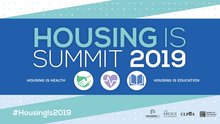
 Shared by Housing Is
on May 24, 2019
Shared by Housing Is
on May 24, 2019

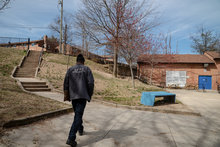
 Shared by Housing Is
on May 20, 2019
Shared by Housing Is
on May 20, 2019

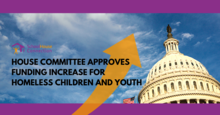
 Shared by Housing Is
on May 15, 2019
Shared by Housing Is
on May 15, 2019
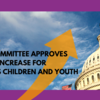
 Shared by Housing Is
on May 13, 2019
Shared by Housing Is
on May 13, 2019
 Shared by Housing Is
on May 9, 2019
Shared by Housing Is
on May 9, 2019

 Shared by Housing Is
on May 7, 2019
Shared by Housing Is
on May 7, 2019


 Shared by Housing Is
on Apr 19, 2019
Shared by Housing Is
on Apr 19, 2019

 Shared by Housing Is
on Apr 8, 2019
Shared by Housing Is
on Apr 8, 2019
 Shared by Housing Is
on Apr 4, 2019
Shared by Housing Is
on Apr 4, 2019

 Shared by Housing Is
on Apr 2, 2019
Shared by Housing Is
on Apr 2, 2019

 Shared by Housing Is
on Mar 26, 2019
Shared by Housing Is
on Mar 26, 2019
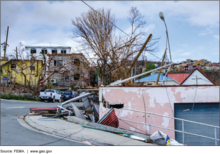
 Shared by Housing Is
on Mar 26, 2019
Shared by Housing Is
on Mar 26, 2019



 Shared by Housing Is
on Mar 14, 2019
Shared by Housing Is
on Mar 14, 2019
 Shared by Housing Is
on Mar 11, 2019
Shared by Housing Is
on Mar 11, 2019